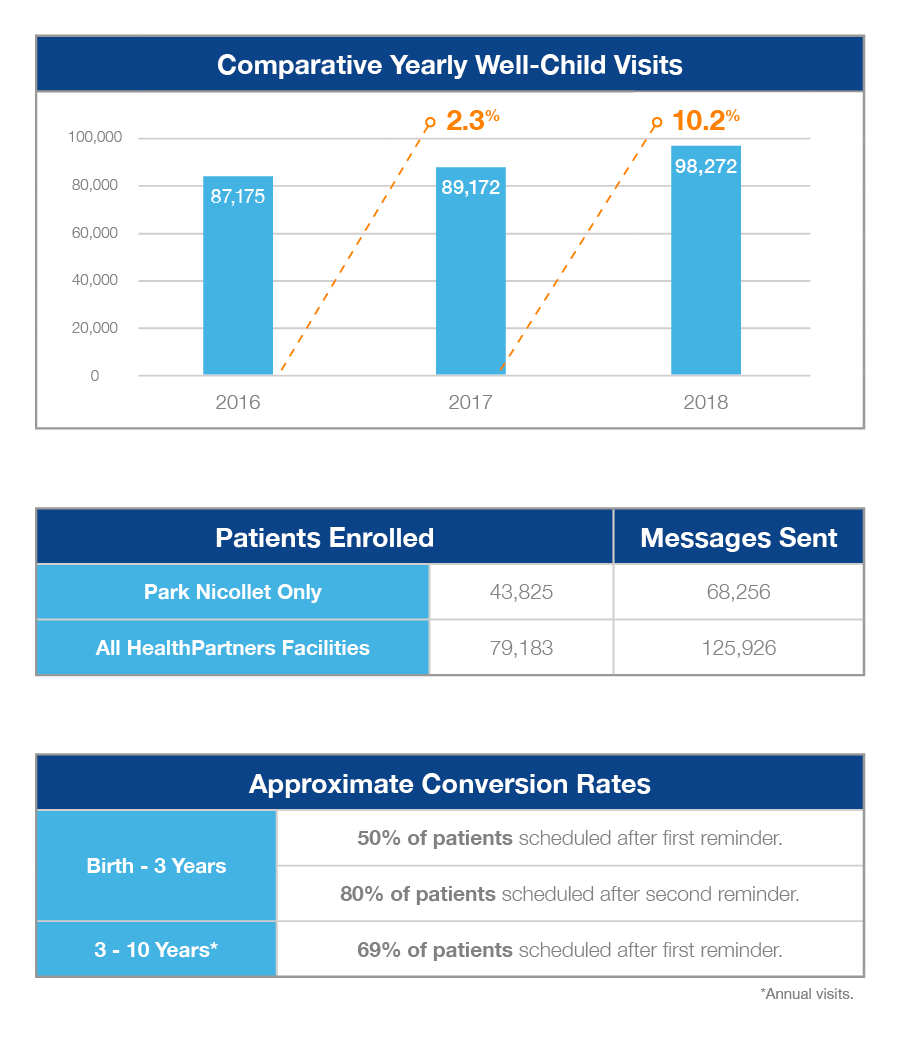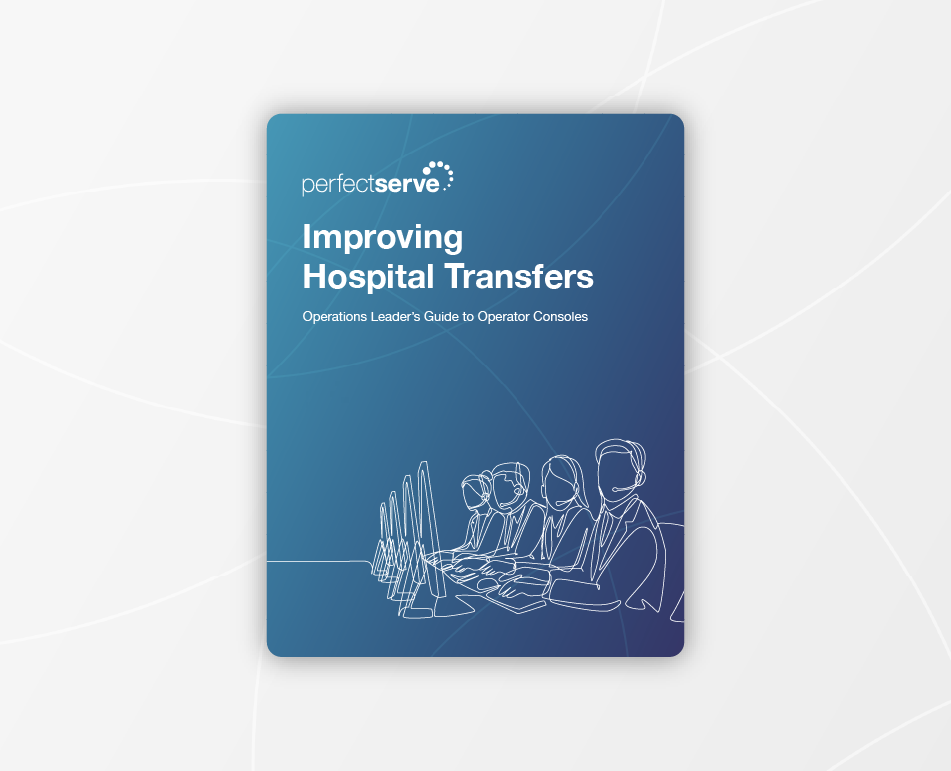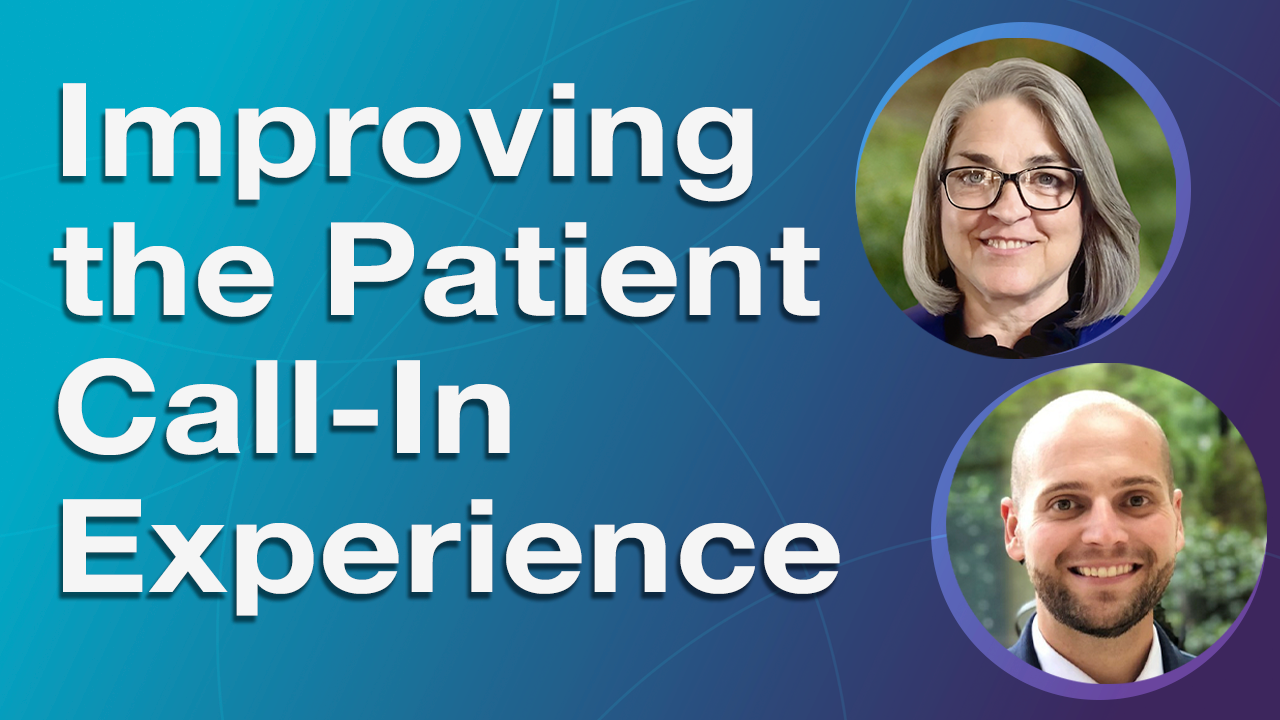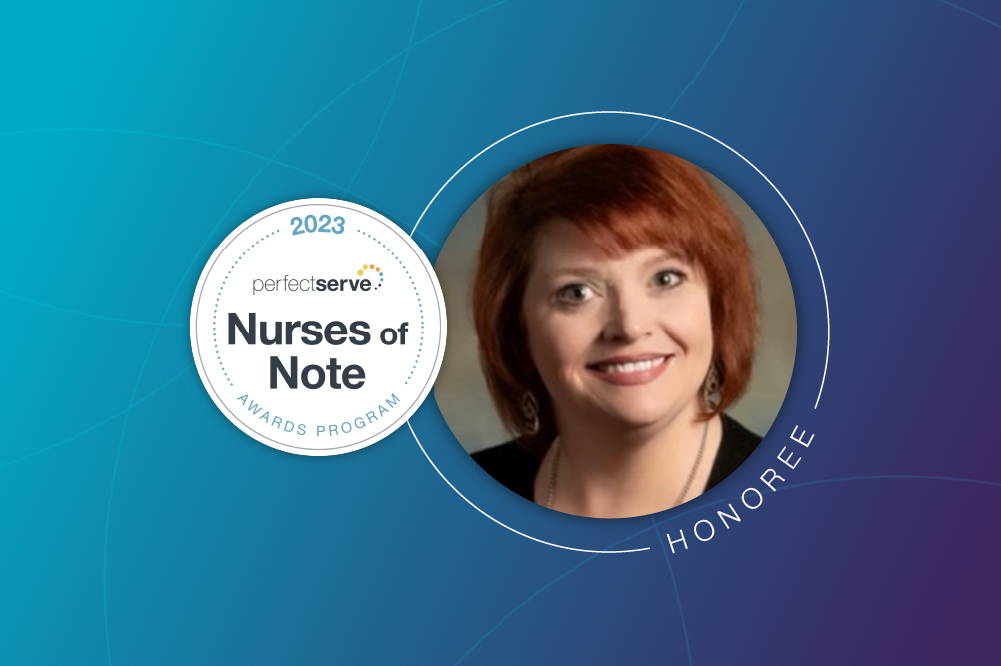Engaging Millennial Parents to Increase Well-Child Visits
TABLE OF CONTENTS
Scheduling well-child visits can be problematic for young parents. Many don’t know how often to bring in their children or understand the importance of regularly scheduled visits. Regular visits are particularly critical during the first three years of a child’s life to track growth and development, help prevent illness, and allow early intervention when necessary for optimal outcomes.
Text message reminders have become an expected touchpoint for dental appointments, vet visits, car maintenance, and various other services for today’s consumer. But some providers have been slow to engage parents via text to help keep their children on track with recommended care plans.
Millennials, who are accustomed to checking their text messages regularly throughout the day, respond positively to businesses that reach out to them via text. Young parents want the efficiency and convenience of smartphone messaging in most aspects of their lives, including appointment reminders.
See how Park Nicollet utilized PerfectServe’s Patient Engagement functionality to launch a text message appointment reminder program helping new parents more closely adhere to the recommended well-child visit schedule.
Constructing the Program
In 2016, Park Nicollet, part of HealthPartners, a nonprofit healthcare system based in Minnesota, launched a text-message-based reminder program to proactively support young parents in scheduling well-child visits from infancy to late childhood. The American Academy of Pediatrics (AAP) recommends six visits in the first 15 months (Health Plan Employers Data and Information Set [HEDIS] measure), which fits into the broad scope of 12 recommended well-child visits by age three.
To promote parents’ adherence to the advised schedule, our team set five goals aligned with best practices from AAP’s Bright Futures initiative:
- Keep children on time for well-child visits.
- Prevent missed visits and gaps in care.
- Improve the patient and parent experience.
- Support Bright Futures—recall and reminder system.
- Improve the HEDIS measure.
A program was launched using an algorithm based on birth dates to send text messages at appropriate intervals to parents of children aged two months to 36 months. Instead of waiting to reach out until after appointments were overdue, preemptive texts encouraged parents to schedule before the next well visit, offering a direct link for parents to easily schedule an appointment. The seamless and automatic process allowed Park Nicollet to reclaim precious staff time that was previously used to manage reminders.
Program Structure
Birth to Three Years
A SMS text message is sent to the child’s family or primary caregiver 30 days prior to the next well-child visit,
based on the child’s date of birth. Then, text reminders are only sent if an appointment is not scheduled in the appropriate timeframe.
Three to 10 Years
A text message is sent to the child’s family or primary caregiver two weeks prior to the next well-child visit, based on the date of the child’s last well-child visit. Then, a text reminder is only sent if an appointment is not scheduled in the appropriate timeframe.
Launching the Program
Launching the program with a small patient population (birth to three years) enabled Park Nicollet to see results quickly; early results showed that the text outreach was positive. Patient satisfaction increased among parents, who loved the ease and convenience of the program. Prior to the texting program, patients were seen an average of one month after their recommended well visit. Only three to six months after initiating the text reminder program, the one-month average gap was cut in half, meaning patients were seen closer to AAP recommendations.
Implementing the program on a smaller scale provided an opportunity to identify and address problems before expanding to the larger population. The biggest challenge involved parental consent and whether to design an opt-in or opt-out program. Park Nicollet defaulted to an opt-in program, requiring parents to provide consent to start receiving text reminders. Eventually, this obstacle overcome by training frontline staff to have parents sign consent forms, but the face-to-face process limited enrollment to the parents who were already making and keeping appointments.
Efficient enrollment and expansion required automation and updating of the electronic health record (EHR). Following the EHR integration, enrollment consent was captured in the EHR and parents didn’t need to be present in the office if they had consented to text messaging as their preferred appointment reminder.
With enterprise-wide expansion of Patient Engagement to all HealthPartners facilities in 2017, the automated process increased enrollment by over 35,000 and increased well-child visits by 10%. Based on the last reported 12-month period, enterprise-wide enrollment has over 79,000 active patients, which includes HealthPartners and Park Nicollet, and over 43,000 enrolled patients for Park Nicollet alone (see Table 1).
Table 1

Development and Expansion
With expansion of the program to Park Nicollet’s entire clinic care group in 2019, they began using text reminders for well visits for children up to age 10. Future initiatives with the program for Park Nicollet included incorporating additional languages (a sizable subset of HealthPartners patients is non-native-English speaking). In addition, increased enrollment of the millennial population presented opportunities to address various patient population needs—such as:
- Reminders for flu vaccines and other immunizations.
- Health metrics monitoring.
- Checks for postpartum depression.
A Roadmap for Getting Started
Leveraging technology with a trusted and experienced partner enabled the team at Park Nicollet to create a program that worked for patients’ families. Following a digital roadmap, PerfectServe and Park Nicollet worked together to build reports derived from actionable, engaging, timely, and relevant data. Based on these insights, here are five recommendations for implementing a successful texting program:
- Partner with a solution that has proven expertise with EMR systems and experience providing reliable, secure communication to patients and their family.
- Engage a project champion to guide project design, implementation, effectiveness, expansion, and quality assurance.
- Assemble a multidisciplinary team—mobile communication technology partner, EMR vendor, physicians, quality improvement specialists, health information management (HIM), compliance and legal experts, growth strategists, and frontline managers—and solicit input from all stakeholders.
- Launch a scaled down program with a small population to identify and address problems before expanding to a larger patient population.
- Initiate the process with a mindset of patience. Avoid trying to implement the program hastily and without forethought. This endeavor demands careful preparation to ensure success.
PerfectServe’s Patient Engagement solution gives providers a simple and elegant way to engage directly with patients. From sharing directions to your office before an appointment to checking in with patients post-discharge, text messaging is a quick, effective, and easily automated way to stay connected with any patient population—most of all millennials.




